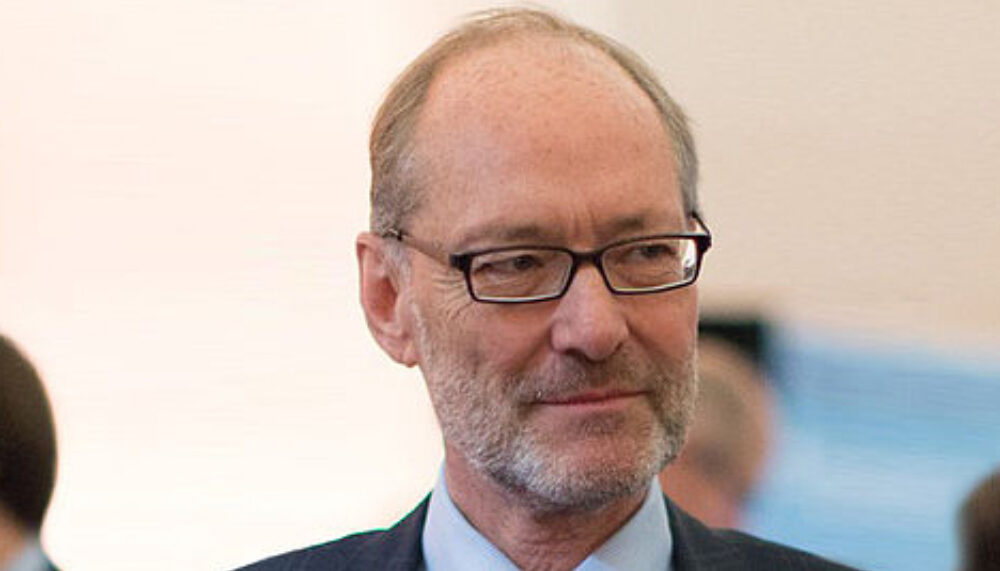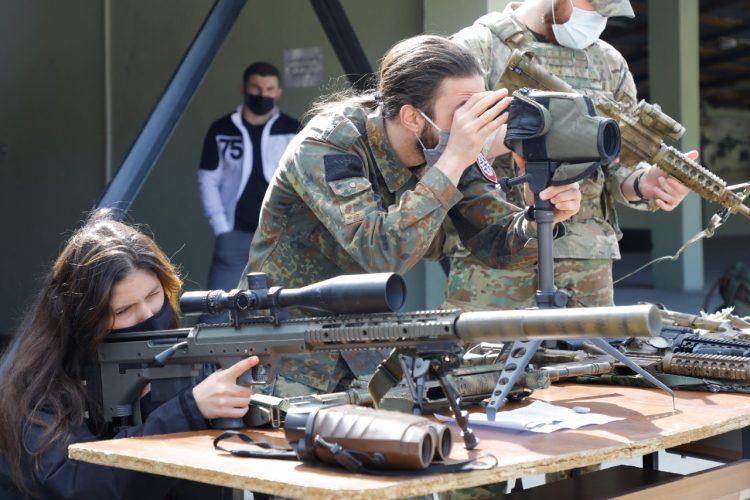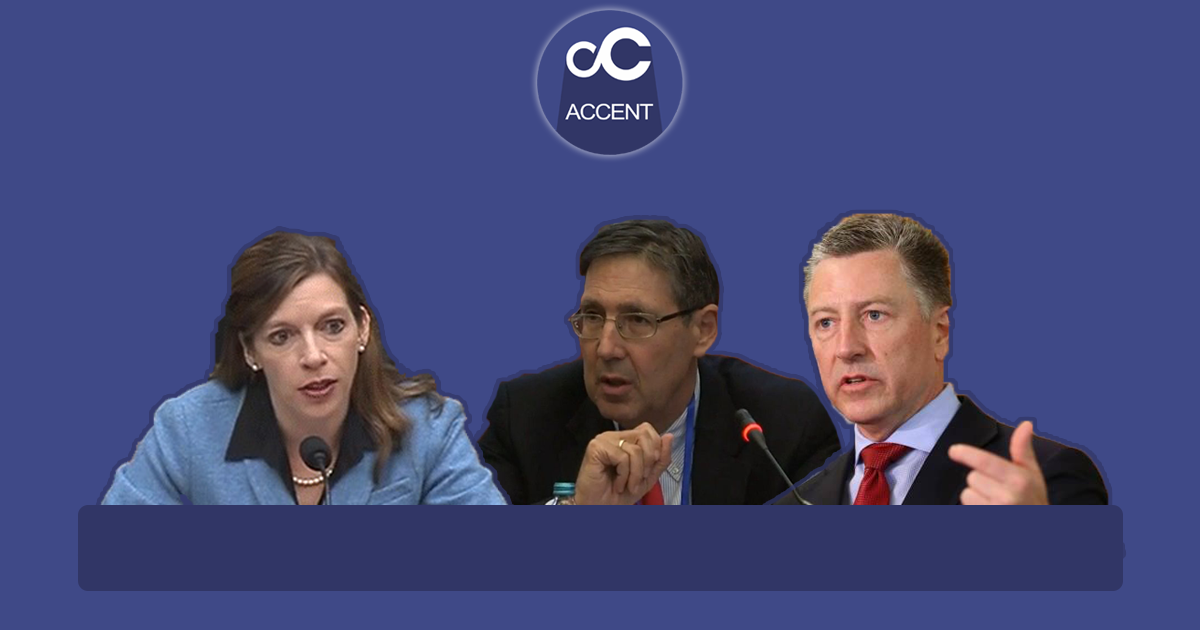
Guenther Baechler: From a moral and a legal perspective, full support of Ukraine is obligatory!
22/11/2023 12:59:48 Analysis
It is indisputable - except for dictators like Kim Jong Un: The Russian war of aggression against neighboring Ukraine violates the UN Charter's ban on war. What is highly controversial, however, is how, or even whether, this violation of the law should be punished. The scale of answers ranges from understanding the supposed Russian self-defense against Western aggression, to the neutralistic equal treatment of victim and perpetrator, to the destruction of the Russian residual empire. What answer does morality give us? Perhaps it can help close the gap between "peace-loving negotiators" and "risk-resistant arms suppliers".
The moral guideline cannot be defined in a voluntarist manner. Both, compliance as well as “good conventions” are clearly predefined: by the prohibition of war under international law and thus, the renunciation of violence in international relations; by the right to individual and collective self-defense against an aggressor; by the national interest in state sovereignty and territorial integrity of the national territory; by the will of the population of an attacked country to defend the survival of the population in freedom and independence - even at unimaginable sacrifices. Avoiding civilian and military casualties by ending an attack as effectively and victoriously as possible is part of the maxim of action for any responsible government. It must also make every effort to counteract an escalation and expansion of the war through an appropriate response.
The defined guideline not only corresponds to moral considerations, but it also brings modern international law (ius cogens under the UN-Charter) and moral conventions into harmony. In contrast to this normative consistency of morale and law, morality and international law diverge in many politically motivated narratives on war. Here are some annotated examples:
- " The Ukraine war ties up too many resources and distracts from conflicts in the South and the poverty agenda. " Against this: as justified as the protests of the global South against the ignorance by the North are, relativizing the atrocities in the Ukraine war does not help to eliminate global injustices; these existed long before February 24, 2022, and they will probably continue for a long time. Injustice cannot be paid for with injustice. In the context of the current war, the "global agenda" easily mutates into a transparent maneuver of the aggressor, as can be seen in his attempt to weaponize or even destroy wheat in Ukraine.
- " Ukraine is anything but a perfect democracy; the corrupt country is idealized and exaggerated. " Apart from the fact that there is no perfectly democratized post-Soviet country today (and many Western countries are not much better off), the constitutionality of a country should not be used as a measure of whether or not the war ban is enforced. De facto, however, it seems that it is not a democratic deficit but Ukraine's relatively successful and unfinished transition that has become a threat to the authoritarian government of Russia itself. If UN members would tolerate that the path to democracy is stopped by force not only in their own country, but also in neighboring or third countries then, they would completely undermine applicable international law, if not the existing world order.
- “ By occupying areas in the neighboring state, Russia is protecting citizens of Russian origin who are discriminated against in Ukraine. " The fact is that all post-Soviet states - most of all the Russian Federation - are struggling with the effects of Stalinist nationality policies. While in Russia the federation has become an instrument of oppression of the numerous peoples, Moscow deliberately aggravates the
problems in the neighboring countries in order to prevent democratic state-building and European orientation (e.g. in the Georgian conflict).
- " The Ukraine war is a proxy war fought between Russia and the USA (NATO) on Ukrainian territory which means that the support of the Ukraine is finally useless. " If this hypothesis were true, then, the proxy war /”Stellvertreterkrieg”) on the territory of an innocent third party is particularly reprehensible. While the people of the affected country experience immeasurable suffering on behalf of the competing great powers, the populations of the actual belligerent states are apparently allowed to continue to enjoy their everyday lives in integrity; they may confidently ignore the war being waged in their name. It seems that morality in a proxy war must be put aside, otherwise the consciousness of guilt, if that troubles anyone at all, could hardly be endured.
- “ The arms deliveries by the West prolong a senseless war that cannot be won anyway. Therefore: negotiate now! " As we have learned: Without readiness in Moscow there will be no negotiations at all. On the other side, it must be fully respected that Ukraine does not want a ceasefire now. It would run the risk of having to accept a division of the country or a dictatorial peace. What this means can currently be seen in Armenia and Nagorno-Karabakh. A forced ceasefire increases the risk of civil war in Ukraine and threatens the country's existence. In fact, a halt or repeated delay in arms deliveries prolongs the fighting and unnecessarily increases the number of casualties. This should have been learned by now even by the numerous military experts, advisors, and mediators who already thought the Russian attack was improbable and have been suggesting submission or surrender to Kyiv since they were wrong.
- " Western arms deliveries increase the danger of an expansion or escalation of the war up to the use of nuclear weapons. " In contrast, we experienced that as of now, NATO has imposed great restrictions on itself and on Ukrainian self-defense: no geographic expansion of hostilities into NATO territory; no inclusion of the aggressor's territory, although it is a war zone under international law; no use of long-range weapons; no air superiority over its own territory; etc. Ukraine compensates for the lack of necessary weapons in the overall defense system with creative solutions, which, however, require a high price and cost a lot of time. The nuclear threat plunges all responsible actors into a dilemma: on the one hand, it must be insisted that mandatory international law (prohibition of the use of force) also applies to major nuclear powers. Whoever is confronted with nuclear ransom demands can either pay – thus capitulate – or cannot pay while at the same time working tirelessly towards a global condemnation of the threat or use of nuclear weapons.
In sum, these six quite frequently used narratives reflect morally questionable responses to the carnage before our eyes. The victims of military aggression, hence the Ukrainian population, are further punished by the denial of necessary diplomatic and military support; by the "buying" of time by overly reluctant governments; by the instrumentalization of Ukraine's aid for domestic political power games (election campaigns); by fearfully backing down from empty threats by the Russian government, etc. Ukraine's capitulation is thus moving into the realm of possibility in the long term. Morals, international legal order and the perspective of sustainable peace in Europe, perhaps in the world, fall by the wayside. No wonder, the Ukrainian leadership distrusts Western governments. Too often in recent years, negotiations have ended in lousy compromises that became big business for the producers of barbed wires. Virtually all the agreements favor Russian interests, none the interests of the invaded and dismembered countries. As DER SPIEGEL (Sept. 16 issue) headlined, the Ukraine war began in April 2008 with Bucharest's refusal to allow Ukraine to join NATO. Is fifteen years not enough to do what is morally
required? How much revisionist gluttony will Western governments accept before they finally set about implementing a reliable European peace order with common and equal security for all countries?
Morally and legally, there is only one answer: supporting independent Ukraine as a state and society with all means of peace diplomacy and collective self-defense is the order of the day. For future negotiations on a ceasefire and a sustainable peace order, it is imperative that Russia is pushed back and has to withdraw from Ukraine. Those who still do not take Russia's war aims seriously may soon become the cause of an even greater moral catastrophe.
Guenther Baechler
Dr. Günther Baechler is a peace researcher and mediator. He served as a Swiss ambassador in Georgia and Armenia. He was a special envoy in numerous peace processes; among others Nepal, Sudan, South Caucasus, Cameroon. From 2016 till 2018 he served as an OSCE Co-Chair of the Geneva International Discussions between the Russian Federation and Georgia.








